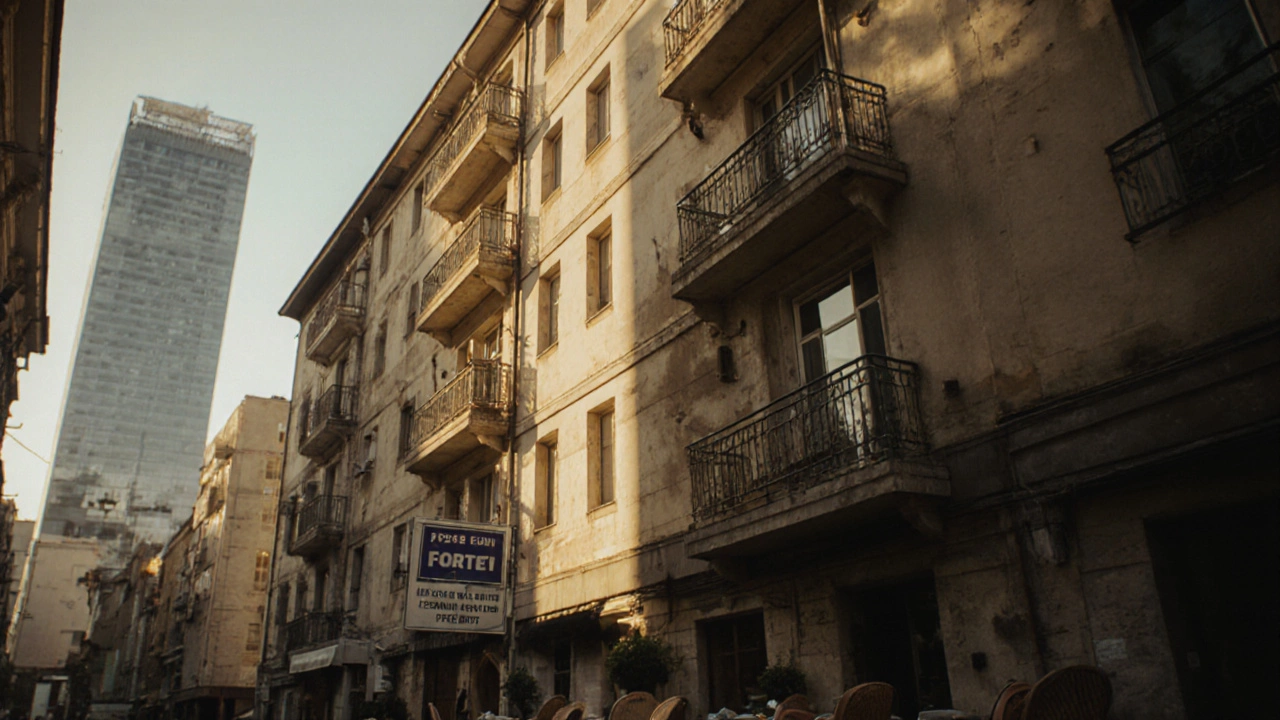Cheapest Property Investment Calculator
Investment Summary
Estimated Total Property Cost: $0
Estimated Annual Rental Income: $0
Estimated Rental Yield: 0.00%
Estimated Potential Capital Gain: $0
If you’re hunting for a deal that won’t break the bank, the global real‑estate map looks very different in 2025. Economic shifts, currency swings, and local policy changes have opened up a handful of markets where the price per square metre is dramatically lower than in traditional hubs. Below you’ll learn which locations offer the deepest discounts, why they’re cheap right now, and how to avoid hidden traps before you commit.
Quick Takeaways
- Eastern Europe and Southeast Asia host the bulk of sub‑$1,000USD per sqm opportunities.
- Currency depreciation can boost buying power, but it also adds exchange‑rate risk.
- Check foreign‑ownership rules - some markets restrict title transfer to non‑residents.
- Look for rental yields above 6% to offset low price appreciation.
- Solid due‑diligence (legal, tax, market stability) turns a cheap price into a real investment.
Cheapest Property Markets is a group of countries or cities where residential real‑estate prices are significantly lower than global averages, often due to a mix of economic, regulatory, and demographic factors. In 2025 those markets are clustered around three themes: post‑pandemic recovery zones, economies with weakened currencies, and regions where restrictive zoning keeps new supply low but demand remains modest.
Why Prices Vary So Much
Understanding the forces behind low prices helps you spot genuine bargains versus temporary glitches. The main drivers are:
- Property Price Index (PPI) tracks the average cost of a standard dwelling per square metre and reflects supply‑demand balance.
- Exchange Rate Risk measures how fluctuations between your home currency and the local one affect the real cost of purchase.
- Foreign Ownership Restrictions dictate whether non‑citizens can hold title outright, lease long‑term, or must partner with a local entity.
- Rental Yield indicates the annual gross rent as a percentage of the property price - a quick proxy for cash‑flow potential.
- Mortgage Interest Rate influences how affordable financing is for locals and foreigners alike.
- Capital Gains Tax determines what portion of any resale profit you’ll owe the state.
- Real Estate Market Stability captures political risk, economic volatility, and regulatory consistency.
When these variables line up favourably, you get the sweet spot of low entry cost and reasonable upside.

2025 Snapshot of the Cheapest Markets
Data compiled from national statistical offices, real‑estate portals, and the Global Property Price Index (Q22025) shows the following average prices for a 70sqm apartment in city‑centre locations:
| Country / City | Price per sqm (USD) | Currency Risk | Ownership Rules | Typical Rental Yield |
|---|---|---|---|---|
| Romania - Bucharest | 850 | Medium (Leu) | Free for EU citizens, limited for others | 5.8% |
| Bulgaria - Sofia | 780 | Low (Lev) | No restriction for EU, 30‑day stay for non‑EU | 6.2% |
| Philippines - Cebu City | 620 | High (Peso) | Condominium units can be owned 100% by foreigners | 7.1% |
| Moldova - Chișinău | 530 | Very High (Leu) | Foreigners can buy new projects only | 6.5% |
| Egypt - Alexandria | 470 | Medium (Egyptian Pound) | Foreign ownership allowed up to 70% in new developments | 8.0% |
Top 5 Cheapest Places to Buy Property Right Now
Below is a deeper look at each market, why it’s cheap, and what you should watch before taking the plunge.
1. Bucharest, Romania
Romania’s capital blends EU stability with a property price that lags behind Western Europe. The average price of $850USD per sqm is driven by a surplus of post‑communist apartment blocks and a modest influx of tech firms that keep demand steady but not overheated. cheapest property markets enjoy low vacancy rates (around 4%), meaning rental income is reliable. Watch out for the bureaucracy around land titles - older deeds sometimes need re‑registration.
2. Sofia, Bulgaria
Sofia offers the lowest price per sqm among EU capitals at $780USD. A strong IT outsourcing sector fuels rental demand from expats, while the Bulgarian Lev is pegged to the Euro, reducing exchange‑rate surprises for Euro‑zone investors. The city’s property tax is under 0.15% of market value, but you’ll need a local tax number to register ownership.
3. Cebu City, Philippines
Cebu’s coastal charm and booming BPO industry have turned it into a hotspot for digital nomads. The Philippines permits 100% foreign ownership of condominium units, a rarity in Asia. Prices sit at $620USD per sqm, and the rental market is buoyant with yields over 7%. However, the Peso can swing sharply against the USD - a 10% depreciation can erase half of your projected return.
4. Chișinău, Moldova
Moldova’s capital is often missed by mainstream investors, which keeps prices at a rock‑bottom $530USD per sqm. The government encourages foreign investment through tax holidays on new‑build projects. Risk factors include limited liquidity (few resale platforms) and a banking sector that still tightens credit for foreign borrowers.
5. Alexandria, Egypt
On the Mediterranean, Alexandria offers $470USD per sqm, the cheapest among major coastal cities. The Egyptian government has opened up new‑development zones to foreign investors, allowing up to 70% ownership. High rental yields (≈8%) reflect strong tourism demand, but political stability and regulatory consistency can shift quickly, so keep a local attorney on standby.
How to Assess Whether a Cheap Market Fits Your Goals
Even the lowest‑priced market can turn sour if you skip due‑diligence. Follow this 7‑step checklist:
- Verify the Property Price Index trends for the last 3‑5 years to make sure the low price isn’t part of a long‑term decline.
- Calculate the Exchange Rate Risk using forward contracts or currency‑hedged loans.
- Confirm Foreign Ownership Restrictions - do you need a local partner, a lease‑hold, or a corporate vehicle?
- Run a rent‑vs‑price model: Gross Rental Yield = (Annual rent ÷ Purchase price) × 100. Aim for ≥6% to cover taxes and maintenance.
- Check the local Mortgage Interest Rate. If you plan to finance, a rate above 8% can erode cash‑flow.
- Understand the Capital Gains Tax regime - some countries tax only the profit, others tax the entire sale amount.
- Gauge Real Estate Market Stability by reviewing political risk scores, inflation trends, and upcoming infrastructure projects.

Common Pitfalls and How to Avoid Them
- Ignoring hidden fees: Transfer taxes, notary fees, and registration costs can add up to 8‑10% of the purchase price.
- Overlooking resale liquidity: In markets like Moldova, finding a buyer later may take years, forcing you to hold the asset longer than planned.
- Relying on unofficial price sources: Use government‑published data or reputable portals; anecdotal “friend‑of‑a‑friend” prices are often outdated.
- Underestimating property management costs: International investors need local agents - budget 10‑15% of rental income for management.
- Neglecting legal due‑diligence: Without a local lawyer, title defects or zoning violations can surface after purchase.
Quick Decision Checklist
- Do you have a clear budget in USD and can you absorb currency swings?
- Is the target market’s ownership law compatible with your investment structure?
- Does the expected rental yield exceed the combined cost of financing, taxes, and management?
- Have you spoken to a local real‑estate attorney and verified title clean‑up?
- Are there upcoming infrastructure or tourism projects that could boost demand?
Frequently Asked Questions
Can I buy property in these markets as a non‑resident?
Yes, but the rules differ. Romania and Bulgaria allow EU citizens full ownership and grant limited rights to others. The Philippines lets foreigners own condominium units outright, while Egypt permits up to 70% in new developments. Always check the latest local legislation.
How do I protect myself against exchange‑rate loss?
Consider a forward contract with your bank, or finance the purchase in the local currency using a local mortgage. Some investors also hold a portion of the investment in a stable currency‑hedged fund.
What financing options are available for foreign buyers?
In Bulgaria and Romania, local banks offer mortgages up to 60% of the appraised value for EU citizens; non‑EU buyers may need a larger down‑payment or a foreign‑bank loan. In the Philippines, many banks require a 30‑year loan with a 30‑40% down‑payment for foreigners.
Are there any tax treaties that reduce double taxation?
Many of the listed countries have tax treaties with the US, UK, Canada, and EU members. These treaties typically lower withholding tax on rental income and can prevent double capital‑gains tax. Consult a cross‑border tax specialist to confirm the treaty benefits for your residency.
What’s the best way to find reliable local agents?
Start with reputable international broker networks (e.g., Knight Frank, Savills) that have local offices. Verify their licensing with the national real‑estate regulator and ask for references from recent foreign investors.


Corbin Fairweather
I am an expert in real estate focusing on property sales and rentals. I enjoy writing about the latest trends in the real estate market and sharing insights on how to make successful property investments. My passion lies in helping clients find their dream homes and navigating the complexities of real estate transactions. In my free time, I enjoy hiking and capturing the beauty of landscapes through photography.
view all postsWrite a comment